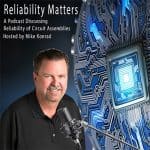
RRP 106 People, Connection & Culture with Ryan Chan
On this week’s episode, I welcome Ryan Chan, the founder & CEO of UpKeep to the show. We discuss radical transparency, communication and building personal connection in the workplace. We have special guest appearances by Bob Latino & Michelle Ledet Henley.
If you’re company sells products or services to engaged maintenance & reliability professionals, tell your marketing manager about Rob’s Reliability Project. If you’d like to discuss advertising on my content, please email me at robsreliabilityproject@gmail.com
If you haven’t yet, check out my website robsreliability.comand sign up for the weekly reliability newsletter with bonus content. If you like the show, please tell your colleagues about it and follow Rob’s Reliability Project on LinkedIn and YouTube.
Follow Rob’s Reliability Project on LinkedIn – https://www.linkedin.com/company/robsreliabilityproject/
Follow Rob’s Reliability Project on Facebook – https://www.facebook.com/robsreliabilityproject/
Music by XTaKeRuX, Song: White Crow is licensed under a Creative Commons 4.0 Attribution License.









 Ask a question or send along a comment.
Please login to view and use the contact form.
Ask a question or send along a comment.
Please login to view and use the contact form.